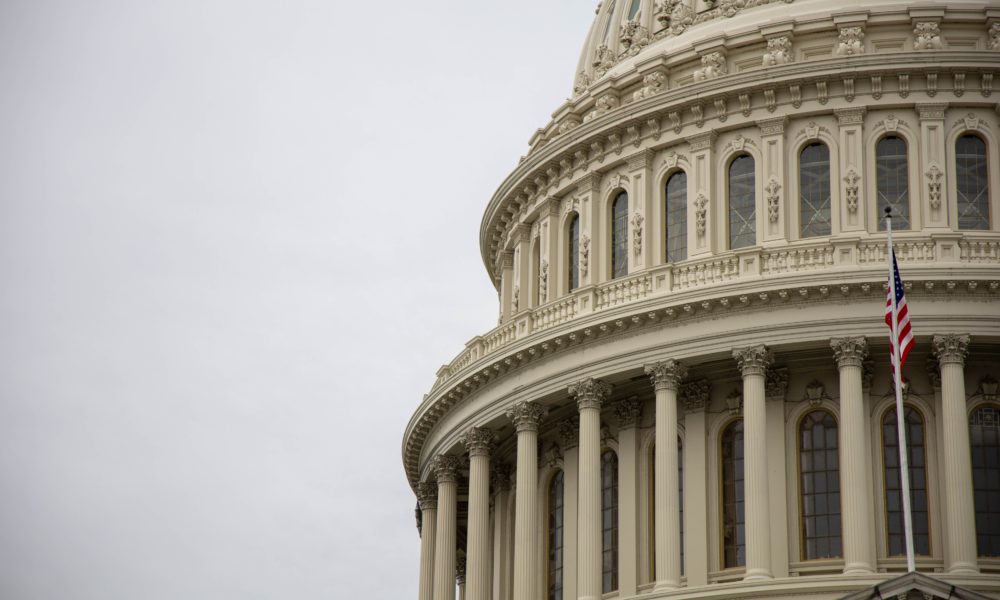President Joseph R. Biden Jr.’s new immigration proposal would provide recipients of the Deferred Action for Childhood Arrivals program the opportunity to receive green cards following a three-year pathway to citizenship, if passed by Congress.
The new proposal includes a pathway for individuals who are undocumented under Temporary Protective Status and a general eight-year pathway for those who do not fall under DACA or TPS programs.
Members of the Long Beach State community have expressed positive feelings toward Biden’s proposal, many of whom are DACA recipients themselves.
“I think it’s great, not just for me but for a lot of other people. If something like this would pass, I would feel a little bit more security,” said Lizeth Romero, a fourth-year human development major. “I wouldn’t have to be afraid I might not have the opportunity to continue my career.”
Romero said she came to the United States with her family when she about a year old and applied for DACA when it first was authorized in 2012.
“Being a DACA recipient is already a lot when I know a lot of men and women who don’t have that and want to study or have a career,” Romero said. “I feel very blessed. I know it’s not citizenship, but it has helped me go to college and get financial aid.”
Those who are undocumented and not part of any program will be able to apply for temporary legal status and green cards after five years if they pass a “criminal and national security background check,” along with paying taxes according to a White House statement.
Dreamers, TPS and immigrant farmworkers who meet the requirements will be able to immediately apply for green cards, according to the statement. All green card recipients after three years will be eligible to apply for citizenship once they pass “additional background checks and demonstrate knowledge of English and U.S. civics,” the statement reads.
Biden’s proposal will also allow undocumented individuals who are awaiting green card status to join family in the U.S. temporarily if they have “approved family- sponsorship petitions.”
Romero said she would use this opportunity to study abroad or do research, a dream she never thought would be possible.
“I never thought of [studying abroad] as an option because of my legal status. If I had the opportunity, I 100% would do everything,” she said. “I could to study abroad or do research.”
The bill will provide $4 billion in aid over four years to the countries of El Salvador, Guatemala and Honduras to reduce “corruption, violence and poverty” influencing people to seek refuge.
It will establish “designated processing centers” in Central America to help register and process refugees for resettlement, according to the bill, and will re-establish a program to reunite children with relatives who are in the U.S. through the Central American Minors program.
Adrianna Ortega, a fourth-year studio arts major and Chicano studies minor, said the proposal would provide her a feeling of security and better job opportunities.
“I wouldn’t have that feeling of just being different, being undocumented, because it is a scary feeling,” Ortega said.
Ortega said she and her family came to the U.S. when she was just three months old and became a DACA recipient in 2013. She is currently in the process of applying for a green card through her finance in the military.
As the first in her family to graduate high school and now university this spring, Ortega said she feels pressured as a first-generation student to succeed and support her family.
“I’ve been feeling pressure to maintain a good representation and profile,” Ortega said. “I’m making changes for my family and [for] future generations.”
Armando Vazquez-Ramos, a professor of Chicano Studies at CSULB, said that citizenship under Biden’s proposal would reduce job discrimination and open up more employment opportunities.
“For students at Cal State Long Beach or any other college, it would mean that they no longer would need to have DACA,” Vazquez-Ramos said. “They would have the legal status to acquire a social security number to work in every type of industry without having to have a special permit like DACA.”
Ortega said that although she is optimistic, she still is cautious about the program being implemented.
“We’re all happy, but we’re not fully content because [Biden] is promising us all this, but it’s still our responsibility to push him into making these policies come true,” Ortega said. “We have been waiting, and we’re not going to keep waiting.”
After obtaining her degree, Ortega intends to continue performing advocacy work through the Coalition for Human Immigration Rights. Romero said she would like to become a community college professor post-graduation.
Although she remains hopeful, Romero tries not to think about citizenship very often as she fears it may never come to fruition.
“It’s not something I think about a lot because I don’t want to be so hopeful that it will happen, and then in the end nothing happens,” Romero said. “I won’t be able to have that opportunity that everyone wanted and that Biden said he would give.”
Vazquez-Ramos said that though the legalization process is a difficult one, it is something that is “priceless.”
“Getting closer to a path towards citizenship is the greatest battle,” Vazquez-Ramos said. “That’s what becomes priceless, that you’re now working towards not only [being] legalized, [but] to become a citizen.”




